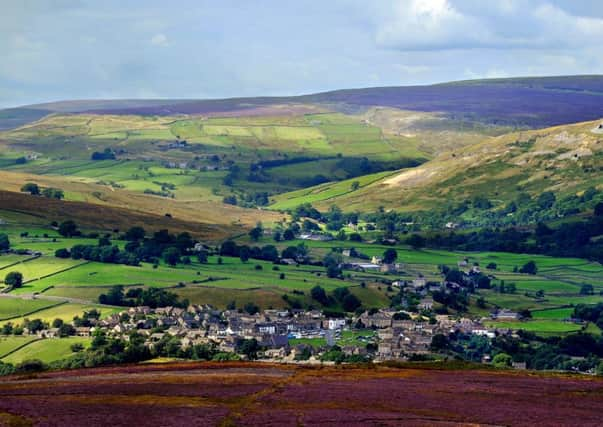Donald Curry: Brexit is chance for agriculture to shape its destiny


As has been said, it is an exciting time and an opportunity to shape our own destiny to create a set of policies that benefits agriculture and horticulture, our customers and our consumers; that contributes to our economy and our balance of payments; and that deliver environmental benefits.
It will also help us to contribute to our climate change obligations. We also have an opportunity to recognise the important contribution that agriculture can make to the nation’s health. We must take the opportunity to design a holistic policy that embraces all these issues.
Advertisement
Hide AdAdvertisement
Hide AdI should like to emphasise three areas of concern. First, I want to stress again the importance of agriculture in the Brexit negotiation.
There continues to be a deep concern that agriculture is way down the ranking in the Government’s priorities.
I should add that the fisheries sector shares the same concern.
The Common Agriculture Policy – the “expensive failure”, as described by Ministers – has had a dominating influence on agriculture ever since we joined the Common Market, so these negotiations are crucial.
Advertisement
Hide AdAdvertisement
Hide AdIn addition, we are part of Britain’s largest industry sector by a mile – it is even more important than the Minister described. The food industry is built on the foundation of the farming sector: agriculture provides the raw materials for our food processing and manufacturing sectors and much of the food service sector.
Together they are far larger than the automobile, aerospace or exciting hi-tech sectors that get much attention. Yet the agrifood industry is barely recognised in the Government’s hugely important industrial strategy.
Why is that?
In education and skills, farming and food science subjects are not even recognised as STEM subjects. Why is that? This industry is increasingly a hi-tech, innovative and professional industry.
There is a need for government to acknowledge the importance of this, both in the negotiations and in the design of domestic policy. This is true also of the trade negotiations.
Advertisement
Hide AdAdvertisement
Hide AdThe Minister suggested, as many do, that abolishing the CAP will lead to cheaper food. However consumers in Britain enjoy cheaper food today, in relative terms, than at any time in recent history. Food being even cheaper could have a serious detrimental impact on farmers’ incomes.
We do not want to be sacrificed in the trade negotiations to reach speedy and favourable agreements for other sectors of industry.
Secondly, I am deeply concerned about the relationship between the devolved governments within the United Kingdom. I assume the new Bill will address that issue.
It is essential that we replace the structure currently provided by the CAP with our own UK structure that sets out a framework within which all four parts of the UK will function and, I hope, flourish.
Advertisement
Hide AdAdvertisement
Hide AdThere will be a massive void when we leave the European Union.
The House of Lords report from EU Sub-Committee D on Brexit and agriculture refers to this very real concern. Of course Brexit is, on the one hand, an opportunity to allow the devolved parts of the UK to design policies appropriate to their own priorities and circumstances.
However, if this does not take place within an agreed UK framework, the result could be chaotic, cause massive tensions and will potentially disrupt trade.
I am aware that this will be a difficult issue, particularly with the Scottish nationalist government, but it must be grasped and it is urgent.
I shall finish on our competitiveness.
Advertisement
Hide AdAdvertisement
Hide AdThe UK agricultural sector faces exactly the same challenge as our wider industry.
Our competitiveness has declined relative to our main global competitors over the past couple of decades or so. This is a concern now but will be even more so in a post-Brexit world.
We need to invest now – as a matter of urgency, in preparation for the challenge – in skills to project ourselves as an attractive and exciting sector with career prospects, and continue to invest in science, knowledge transfer and new tools and technology to raise our game.
The sector is ready to respond, with new initiatives in place to help address this challenge, but so far has had little encouragement from the Government.
Advertisement
Hide AdAdvertisement
Hide AdWe have a great science base in Britain, with world-recognised institutions.
However, our recent record of transferring knowledge to give us a competitive edge has been poor. This cannot go on, because we are likely to face even greater global competition. We need government support for this.
Lord Curry of Kirkhale is a cross-bench peer and chairman of the Royal Veterinary College. He is a former chair of the Meat and Livestock Commission and NFU Mutual Insurance Society. he spoke in a House of Lords debate on the Queen’s Speech. This is an edited version.